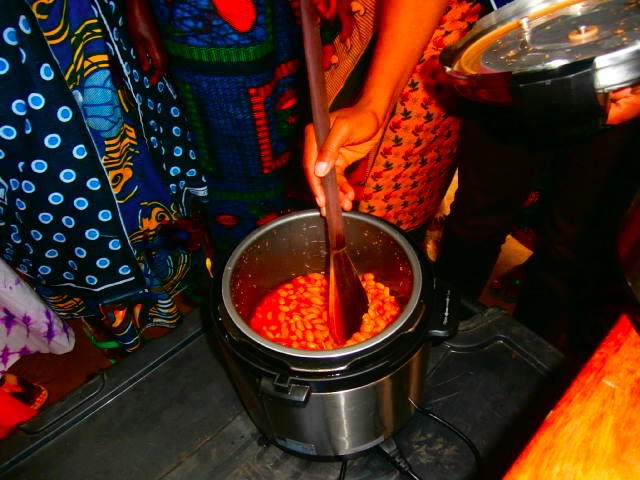
- Date
- 25th January 2021
- Categories
By Dr. Iwona Bisaga (Loughborough University)
In December 2020, the humanitarian energy stream at MECS held two stakeholder consultation workshops: the first one with the MECS team members and partners, and the second one (co-hosted with the GPA) with the wider humanitarian energy community. The goal was to discuss the recently released “Landscape Analysis of Modern Energy Cooking in Displacement Settings” report with the focus on the strategic priorities identified for the humanitarian stream. The workshops also offered an opportunity to better understand who would be interested in partnering and collaborating under the 5 focus themes, namely:
- Urban and peri-urban displacement
- MECS for community facilities and institutional settings
- Financing of MECS in displacement settings going beyond grants
- Quality data on energy access in displacement settings
- Inclusive models of provision (electricity and energy for cooking; the displaced and host communities; and gender-inclusive leave no one behind (GILNOB))
The discussions facilitated in breakout groups centred around questions on the opportunities and barriers for MECS in displacement settings, themes or areas that seemed to be missing from the identified priorities, as well as ways to create and strengthen synergies with the existing MECS streams and activities led by other stakeholders and partners.

What did we learn?
We found that while there is limited availability of data on the displaced and their location in urban settings, MECS have an opportunity to benefit from the ongoing projects to understand what energy services the displaced access and on what terms. An example could be the work carried out under Renewable Energy for Refugees (RE4R) in Jordan, led by Practical Action and Chatham House, and the urban displacement work of the Norwegian Refugee Council (NRC). Among the key barriers is the uncertainty of grid connections at a household level, and in the cases where a connection exists, it might be unstable/of poor quality or illegal, if the household is located in an informal settlement, for example. Infrastructure provision can also be limited due to the (perceived) temporary nature of these settings.
While urban settings offer more opportunities for e-cooking, partnerships with mini-grid providers could be explored for the testing of EPCs than rural or camp settings to facilitate institutional transitions to modern energy cooking services. Humanitarian institutions or community facilities transitioning to modern energy cooking services could also act as anchor clients to encourage investment in off-grid or on-grid electric cooking or to help convince utilities to support e-cooking, thus maximising impact by reaching households and businesses currently without access.
In order to ensure more synergies and inclusion, getting communities involved early on (from conception to implementation and beyond) through training, consultations and active participation is critical. Promoting active engagement with the displaced in developmental energy access programmes, national policies and results-based financing schemes could also help achieve that. This should be in parallel with the intent to include host communities when designing MECS projects/interventions.
Affordability and sustainability should be carefully considered as it remains among the top challenges. Non-traditional financing mechanisms have become promising, including blended finance. For example, philanthropic crowdfunding and carbon and development impact finance which have been an emerging area for metered cooking solutions (such as LPG, biogas or EPCs). The MECS programme is actively working with a number of partners on health, environmental and gender-impact metrics for carbon financing by demonstrating how usage of different stoves can reduce black carbon emissions and free up women’s time.
Additionally, modern energy cooking services have been shown to be cost-effective when considered over the long term but displacement settings, while often turning into protracted crises spread across several years or even decades, do not always offer long-term opportunities. Hence, the question is what can MECS achieve in the short-term? This will be among the focal points for the MECS humanitarian team to explore over the next couple of years.
Finally, a clear message emerged around data requirements: data is what we need yet data is what we lack the most, under all of the explored themes. There are several opportunities for the MECS programme to contribute to the data efforts. Among them:
- Understand the impacts of MECS for the displaced on local/host communities (e.g., questions around fuel prices and availability; conflict; equity)
- Data on the use of MECS after projects end: what happens beyond projects’ lifespans?
- Use of IoT solutions for data collection to complement more traditional methods such as surveys and self-reported data on fuel use/consumption
- Use of techniques developed in social sciences to gather more qualitative data in addition to quantitative insights (e.g., ethnographic methods).
What’s next?
The humanitarian stream at MECS have already started exploring the identified themes in more depth, incorporating the received feedback. The team will work with the stakeholders who have expressed interest in supporting the work under the different themes to combine efforts, identify synergies and maximise impact of respective activities, whether research- or practice-oriented. For any queries or to get involved, please contact Dr. Iwona Bisaga on i.m.bisaga@lboro.ac.uk.